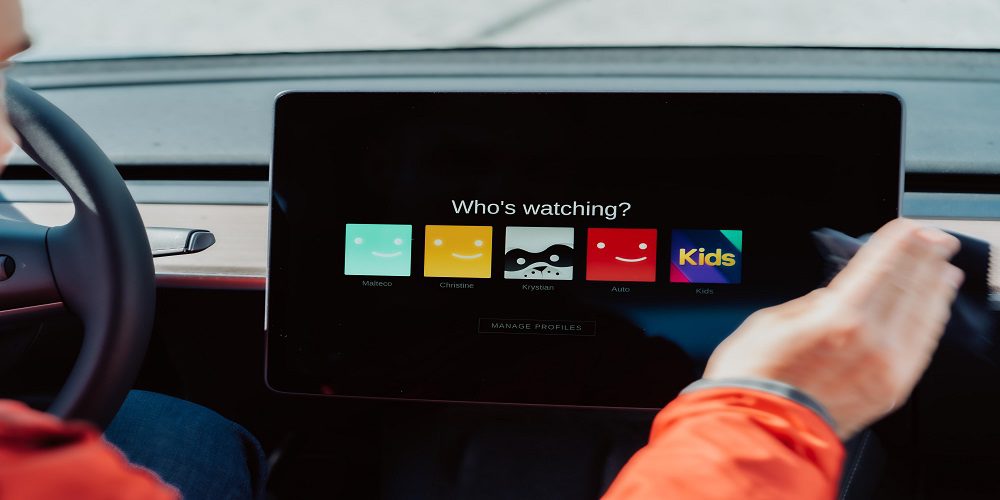Introduction
Living in a world dominated by technology, entertainment apps have seamlessly integrated into our daily routines, offering a diverse range of content, from streaming movies and TV shows to immersive gaming experiences. As smartphones and smart devices continue to proliferate, the prevalence of entertainment apps has soared. This comprehensive analysis aims to uncover the advantages and disadvantages of these digital delights, aiding you in making informed decisions about incorporating them into your life.
Advantages of entertainment apps
1. Convenience and accessibility:
Entertainment apps redefine the way we access and enjoy content. The unparalleled convenience they offer lies in the ability to stream or play our favorite shows, movies, or games at any time and from anywhere. The days of waiting for a specific broadcast time or dealing with complex downloads are replaced by a few taps on your device.
With just a smartphone or tablet, users can break free from the constraints of traditional media consumption. Whether commuting, traveling, or simply relaxing at home, the accessibility of entertainment apps ensures that your preferred content is always within reach. This newfound freedom transforms how we engage with entertainment, aligning it with the on-the-go lifestyle of the modern world.
2. Variety of Content:
The diversity of content available on entertainment apps is a significant draw. These platforms cater to a broad spectrum of interests, from various genres of movies and TV shows to an extensive range of games. This diversity not only caters to individual preferences but also opens avenues for users to explore and discover new forms of entertainment.
Unlike traditional broadcast channels or physical media, entertainment apps provide an extensive and ever-expanding library. Users can seamlessly transition between genres, explore niche content, and stay updated with the latest releases. This vast selection ensures that there’s something for everyone, promoting inclusivity and enhancing the overall user experience.
3. Cost-effectiveness:
The subscription-based model of many entertainment apps presents a cost-effective alternative to traditional methods of accessing content. Instead of paying for individual shows or movies, users can opt for a monthly subscription, gaining unlimited access to a vast array of content. Additionally, free, ad-supported versions make entertainment accessible to a broader audience.
The economic advantage of entertainment apps is twofold. Subscription models often prove more economical than traditional cable TV or purchasing individual movies. Moreover, the availability of free, ad-supported content ensures that those with budget constraints can still enjoy a considerable range of entertainment without incurring additional costs.
4. Personalization:
Entertainment apps leverage advanced algorithms and user data to personalize content recommendations. As users engage with the platform, the app becomes adept at understanding individual preferences and tailoring suggestions that align with their tastes. This not only enhances user satisfaction but also streamlines the content discovery process.
The magic of personalization lies in its ability to transform the user experience from a generic offering to a curated, individualized journey. The more a user interacts with the app, the more finely tuned the recommendations become. This ensures that users spend less time searching for content and more time enjoying what truly resonates with their interests.
5. Social Features:
Many entertainment apps incorporate social features that foster a sense of connection and shared experiences among users. From virtual watch parties to the ability to share recommendations and reviews, these social elements add a communal aspect to the solitary act of consuming content.
The integration of social features transforms entertainment consumption from a solitary experience to a shared one. Users can connect with friends and family, discuss favorite shows, and even watch together in real-time. This social layer adds depth to the overall entertainment experience, creating a sense of community within the digital realm.
Disadvantages of Entertainment Apps
1. Addiction and Time Management Issues:
The immersive nature of entertainment apps, coupled with the convenience of continuous streaming or gaming, can lead to addiction and time management challenges. Constant notifications, binge-watching, or prolonged gaming sessions may result in users losing track of time and neglecting other responsibilities.
The design of many entertainment apps encourages extended use, often leading to a blurred distinction between leisure time and other obligations. The ease of getting lost in a digital world can contribute to addictive behavior, potentially impacting daily routines, work productivity, and overall well-being.
2. Distraction from real-life interactions:
Excessive use of entertainment apps, particularly in social settings, can detract from real-life interactions. The prevalence of smartphones and tablets in social situations may lead to diminished face-to-face conversations, potentially hindering the development of meaningful relationships.
In social gatherings or family settings, the constant engagement with entertainment apps can create a barrier to genuine interactions. This can be especially concerning for children and adolescents, potentially affecting the development of social skills and interpersonal relationships.
3. Potential Exposure to Inappropriate Content:
Despite efforts to implement age restrictions and content filters, there’s always a risk of users, especially children, being exposed to inappropriate or harmful content. Parents need to stay vigilant and actively monitor their children’s usage to ensure a safe and age-appropriate digital environment.
The vast content libraries of entertainment apps, while diverse, may include material that is not suitable for all audiences. Unsupervised usage, particularly by younger users, heightens the risk of encountering content that may be inappropriate or have adverse effects on their development.
4. Cost:
While many entertainment apps offer free versions, accessing premium content often requires a subscription or a one-time payment. The pressure to access exclusive features or a broader content library may lead some users to overspend, potentially causing financial strain.
The subscription model, while cost-effective for many, can become a financial burden if users feel compelled to subscribe to multiple services for a comprehensive entertainment experience. Balancing the desire for premium content with budget constraints is a crucial consideration.
5. Privacy Concerns:
Entertainment apps often collect personal data, including browsing history, location, and demographic information. Users may be unaware of how their data is used, leading to privacy concerns such as targeted advertising or, in some cases, the unauthorized sale of personal information to third parties.
As users engage with entertainment apps, they inadvertently share valuable personal data. The potential misuse of this data raises privacy concerns, necessitating a careful review of privacy policies and proactive measures to safeguard sensitive information.
Tips for Responsible Use of Entertainment Apps:
1. Set time limits:
Establish boundaries by setting daily usage limits, preventing excessive screen time, and fostering a healthy balance between digital and real-world activities.
2. Use parental controls:
Parents should employ available controls to monitor and restrict their child’s app usage, ensuring age-appropriate content and managing screen time effectively.
3. Be mindful of privacy settings:
Regularly review and adjust privacy settings to protect personal information from potential misuse. Stay informed about app updates and changes in privacy policies.
4. Take Breaks:
Combat screen fatigue by scheduling regular breaks. Engage in activities that don’t involve screens to alleviate eye strain and maintain overall well-being.
5. Diversify leisure activities:
Maintain balance by incorporating a variety of leisure activities into your routine. Spend quality time offline with friends and family to complement your digital entertainment experiences.
Conclusion
While entertainment apps offer unparalleled convenience and a myriad of options for enjoyment, their use comes with both advantages and potential drawbacks. By approaching these digital tools mindfully, setting boundaries, and embracing a balanced lifestyle, users can harness the benefits without compromising their mental and emotional well-being.





























